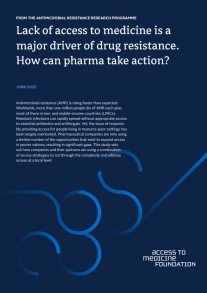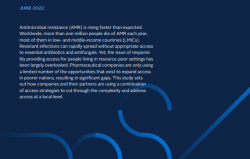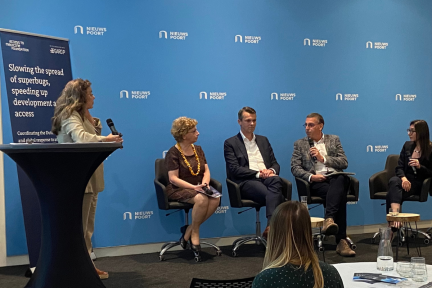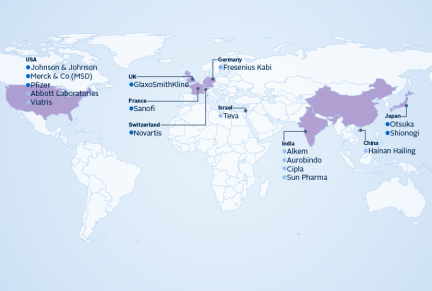Lack of access to medicine is a major driver of drug resistance. How can pharma take action?
Date
27 October 2022
Antimicrobial resistance (AMR) is rising faster than expected. In 2019 alone, 1.27 million people died of drug-resistant infections, most of them in low- and middle-income countries (LMICs). Resistant infections can rapidly spread without appropriate access to essential antibiotics and antifungals.
Yet, the issue of responsibly providing access for people living in resource-poor settings has been largely overlooked. This report identifies six new case studies of pharmaceutical companies that are making antibiotics and antifungals more widely available in low- and middle-income countries. Companies can use this study to understand the tools that are available to them to address access effectively. Other stakeholders may also use this study to understand systemic factors that may be preventing companies from prioritising access.
What's in the report:
Why we need access: The world’s poorest countries experience the greatest rates of infectious disease and the highest levels of antibiotic resistance, but suffer the biggest gaps in access to the right treatments. Without appropriate access, AMR increases.
What can companies do? A wide range of strategies are available to companies for improving access appropriately and sustainably. This report examines and illustrates these.
State of play: What the market looks like for companies looking to bring antibiotics and antifungals to more people, which includes challenges with the go-to-market model for off-patent/generic and on-patent medicines.
Case studies: 6 case studies that show how pharmaceutical companies used access strategies to make off-patent/generic and on-patent antibiotics and antifungals available in LMICS, including Nigeria, India, South Africa and Ghana.
What's next? Tailored recommendations for pharmaceutical companies - including generic medicine manufacturers and research-based companies - and other stakeholders.
This paper is published as part of the Antimicrobial Resistance Research Programme. The programme takes an in-depth look at how the pharmaceutical industry is responding to the growing challenge of drug-resistant infections. The case studies, discussion and recommendations in this study have been drawn from research published in the 2021 AMR Benchmark, as well as from interviews held with companies and experts in the AMR field. This is the first of three stand-alone studies that the AMR Research Programme will publish in 2022-2024.



